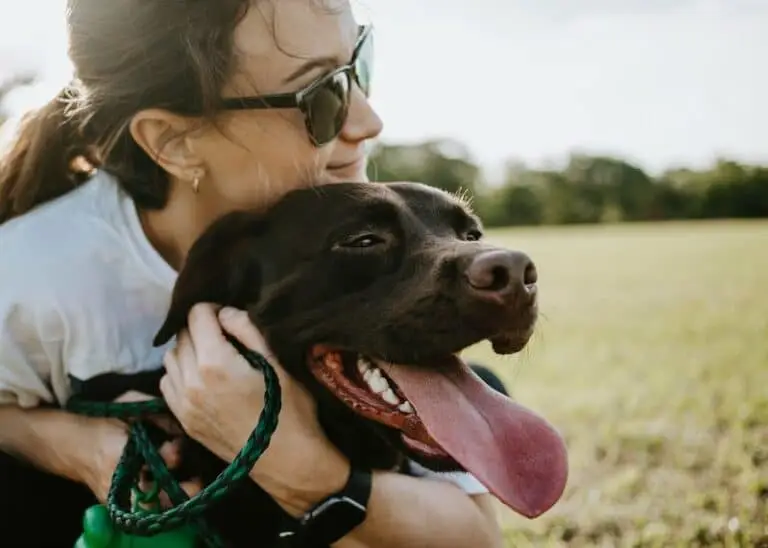Get your official emotional support animal letter here
Online consultation you can trust
As Pennsylvania’s leading solution for approving emotional support animals for housing and travel, we’ve got you – and your pet covered.
ESA Evaluation for only $299
Includes a comprehensive assessment to determine eligibility for an Emotional Support Animal.
ESA Letter for only $84.99
Receive a professionally written letter for your Emotional Support Animal, after evaluation.
Get your official emotional support animal letter here
As Pennsylvania’s leading solution for approving emotional support animals for housing and travel, we’ve got you – and your pet covered.
ESA Evaluation for only $299
Includes a comprehensive assessment to determine eligibility for an Emotional Support Animal.
ESA Letter for only $84.99
Receive a professionally written letter for your Emotional Support Animal, after evaluation.
We accept insurance




Get an ESA letter in 3 easy steps
Brief assessment
Answer a few questions about yourself
Order ESA
Order your pets' ESA for federal protections anywhere you move or live
Therapist approval
In 24-48 hours a therapist in PA will approve your ESA request

The benefits of getting an ESA letter with Makin Wellness
- Enable you to go more places with ease and peace of mind.
- Live with your pet anywhere, even in residences with a 'No Pets' policy
- You and your furry friend will be greeted more welcome in public
- Save money by eliminating costly pet deposits and waive fees
Get your pet approved as an emotional support animal (ESA)
Federal law guarantees your right to have your pet always with you. The Fair Housing Amendments Act (FHAA) ensures your ESA rights in any house or apartment without pet fees. Approval for your well-behaved pet as an ESA boosts your confidence at home, in public, and during travel. Restaurants, stores, rideshares, and more welcome well-behaved ESAs.
Emotional support animal qualifying conditions
- Depression
- Anxiety
- Substance abuse
- PTSD
- Panic Attacks
- Phobias
- Autism
- Learning Disorders
- Attention Deficit Disorder (ADD)
- Sexual Disorder
- Bipolar Disorder
- Gender Identity
- Cognitive Disorders
Over 1,000 5-star reviews

Sara Makin M.S. Ed, LPC, NCC

Rahmah Albugami M.S. Ed, LPC, NCC
Acceptance & Commitment, Multicultural, and Integration Therapy

Mariah Cooney LPC
Coping Mechanism Behavior, Life Coaching, and Social Anxiety Therapy

Erin Kilpatrick M.A., LPC, ATR-BC
Attachment Disorder Therapy, Pediatric ADD/ADHD, Parenting Counseling

Tori Romberger M.A.,LPC, NCC, CCTP
Focus areas:
Bereavement/Grief Counseling, Gambling Addiction Therapy, Porn Addiction Therapy

Tanja Soto M.A., LPC, BCBA
Focus areas:
Autism Spectrum Disorder, Hyperactive Disorder (ADD/ADHD), LGBT Care

Elizabeth Gilmore LPC
Focus areas:
Childhood Trauma Therapy, Pediatric Anger Management, Pediatric ADD/ADHD

Michelle Wygant LPC
Focus areas:
Parent-Child Interaction Therapy (PCIT), PTSD Counseling, Bipolar Disorder Therapy

Carolyn Weimer M.S., LPC
Focus areas:
Addiction/ Substance Abuse Therapy, Anger Management, Court Evaluations

Alonia Slappy M.A., LPC
Focus areas:
BIPOC Mental Health, Cultural Diversity Issues, Emotional Regulation Therapy (ERT)

Elizabeth Peduzzi M.A., LPC
Focus areas:
EDMR Therapy, Seasonal Addictive Disorder (SAD), Behavioral Issues Therapy

Alison Grabell LCSW
Focus areas:
Adjustment Disorder, Cognitive Behavioral Therapy (CBT), Dialectical Behavioral Therapy

Kristine Frechette LCSW
Focus areas:
Bipolar Disorder, Borderline Personality Disorder (BPD), Burnout Therapy

Gabrielle Blawas LSW
Focus areas:
Eating Disorder Therapy, Life Transition Therapy, Stress Management Therapy

Doug Puchko LPC
Focus areas:
Couples Therapy, Bereavement/Grief Counseling, Autism Spectrum Disorder

Randy Potter MA, LPC, NCC
Focus areas:
Expressive Arts Therapy, Music Therapy, Body Dysmorphic Disorder Therapy

Danielle Turk M.S., LPC, NCC
Focus areas:
Caregiver Burnout Counseling, Couples Therapy, Gender Affirming Counseling

Maddison Fyffe M.A., LPC
Focus areas:
Bereavement/Grief Counseling, Personal Development Counseling, Gambling Addiction

Devin Wilcox LPC
Focus areas:
Couples Therapy, ADD/ADHD Therapy, Prolonged Grief Disorder (PGD)

Rachael Dittmar
Focus areas:
Grief, stress, negative self-image

Alexander Noel
Focus areas:
ADHD, anxiety, and depression

Shania Lawrence
Focus areas:
Anxiety, depression, ADHD

Rivka Dattlo
Focus areas:
Anxiety, depression, grief

Eliza Watson
Focus areas:
Grief, adjustment, social anxiety

Sara Makin

Rahmah Albugami
Specialties
Acceptance & Commitment, Multicultural, and Integration Therapy

Mariah Cooney
Specialties
Coping Mechanism Behavior, Life Coaching, and Social Anxiety Therapy

Erin Kilpatrick
Specialties
Attachment Disorder Therapy, Pediatric ADD/ADHD, Parenting Counseling

Tori Romberger
Specialties
Bereavement/Grief Counseling, Gambling Addiction Therapy, Porn Addiction Therapy

Tanja Soto
Specialties
Autism Spectrum Disorder, Hyperactive Disorder (ADD/ADHD), LGBT Care

Elizabeth Gilmore
Specialties
Childhood Trauma Therapy, Pediatric Anger Management, Pediatric ADD/ADHD

Michelle Wygant
Specialties
Parent-Child Interaction Therapy (PCIT), PTSD Counseling, Bipolar Disorder Therapy

Carolyn Weimer
Specialties
Addiction/ Substance Abuse Therapy, Anger Management, Court Evaluations

Alonia Slappy
Specialties
BIPOC Mental Health, Cultural Diversity Issues, Emotional Regulation Therapy (ERT)

Elizabeth Peduzzi
Specialties
EDMR Therapy, Seasonal Addictive Disorder (SAD), Behavioral Issues Therapy

Alison Grabell
Specialties
Adjustment Disorder, Cognitive Behavioral Therapy (CBT), Dialectical Behavioral Therapy

Kristina Frechette
Specialties
Bipolar Disorder, Borderline Personality Disorder (BPD), Burnout Therapy

Gabrielle Blawas
Specialties
Eating Disorder Therapy, Life Transition Therapy, Stress Management Therapy

Doug Puchko
Specialties
Couples Therapy, Bereavement/Grief Counseling, Autism Spectrum Disorder

Randy Potter
Specialties
Expressive Arts Therapy, Music Therapy, Body Dysmorphic Disorder Therapy

Danielle Turk
Specialties
Caregiver Burnout Counseling, Couples Therapy, Gender Affirming Counseling

Maddison Fyffe
Specialties
Bereavement/Grief Counseling, Personal Development Counseling, Gambling Addiction

Devin Wilcox
Specialties
Couples Therapy, ADD/ADHD Therapy, Prolonged Grief Disorder (PGD)

Rachael Dittmar
Focus areas:
Grief, stress, negative self-image

Alexander Noel
Focus areas:
ADHD, anxiety, and depression

Shania Lawrence
Focus areas:
Anxiety, depression, ADHD

Rivka Dattlo
Focus areas:
Anxiety, depression, grief

Eliza Watson
Focus areas:
Grief, adjustment, social anxiety
Highest rated online therapists & counselors in Pennsylvania
Makin Wellness provides a safe, caring environment with only top-rated specialists. We provide secure online therapy & counseling that fits your life. With a results-based, individual approach, our goal is to help you heal and become happy again. Start online therapy today.
FAQs about emotional support animals
The cost for an ESA evaluation is $299, which includes a thorough assessment with a licensed mental health professional to determine your eligibility. If approved, you can obtain your ESA letter for an additional $84.99.
For more details or to schedule your evaluation, feel free to reach out.
In addition to the emotional benefits, having an ESA letter provides tangible legal advantages. With this documentation, your ESA is recognized as a “reasonable accommodation” in housing situations where pets might otherwise be prohibited, ensuring you can live with your animal without facing discrimination or obstacles.
Furthermore, the Air Carrier Access Act (ACAA) allows people to travel with their ESAs without incurring additional fees, and they are not required to place their ESA in the cargo hold during flights. This law helps make travel more accessible and stress-free for those who rely on their support animals for comfort. Additionally, your ESA’s status will grant them the right to wear a support vest, further reinforcing their role and ensuring they are identified as an essential source of comfort.
Most emotional support animals (ESAs) tend to be dogs or cats, as they are the most common and widely accepted types of support animals. However, other types of animals can also qualify as emotional support animals, depending on the individual’s needs and circumstances. These can range from small pets like rabbits and birds to more unusual animals, though exotic species often raise additional concerns. Some exotic animals, depending on their nature or behavior, can pose potential health or safety risks. Because of this, like their owners, ESAs undergo an individualized assessment to ensure they do not present any danger to the public or those around them.
This evaluation helps determine whether an animal is appropriate as an ESA in specific settings, especially in environments where safety is a concern. That being said, don’t discount the possibility of less conventional animals serving as emotional support companions! For instance, in York Haven, PA, there is an emotional support alligator named Wally who is officially registered. This example shows that, with the proper care and assessment, even the most unusual animals can offer comfort and companionship as emotional support animals.
A Makin Wellness counselor will work with you and your ESA to acquire the proper documentation under Federal and Pennsylvania law. Your letter is a prescription from your mental health professional stating recommending the need for your comfort animal. This letter will include:
- Your diagnosed mental health condition or mental health-related disability
- A statement explaining that the emotional support animal accompanying you is necessary for your mental health and/or treatment
The breed of your ESA animal - The issuer of the letter is a licensed mental health professional, and you are under their treatment or care for a mental health disability
- The issuer’s license number, type of license, the license issue date, and the state or jurisdiction where it was issued.
There is no legal requirement for your Emotional Support Animal (ESA) to wear a vest or any specific identification, though it can be beneficial to do so. When your ESA is easily recognized as a support animal, it can help reduce confusion or misunderstandings in public spaces, making interactions smoother.
However, it’s important to note that ESAs are not granted the same access rights as service animals. Public establishments, such as restaurants, stores, or other businesses, are not legally obligated to permit emotional support animals, as they are with service animals. Therefore, while a vest may make it easier for others to identify your ESA, it does not guarantee entry into all public places. Always be mindful of the establishment’s policy on ESAs before entering.
No. Emotional support animals, comfort animals, and therapy dogs are not service animals under Title II and Title III of the ADA.
Emotional Support Animals
- ESAs do not require individual training
- Emotional Support Animals are here to provide you with a sense of safety and companionship.
- Public establishments are not required by law to allow ESAs as they are not considered “Service Animals”
Service Animals
- A service animal is any dog individually trained and certified to perform beneficial tasks for an individual person with physical, sensory, psychiatric, intellectual, or other mental disabilities.
Currently, we are only able to provide ESA evaluations and letters to residents of Pennsylvania, as our licensed mental health professionals are only authorized to practice within the state. If you’re located outside of Pennsylvania, we recommend seeking a licensed professional in your state who can assist with your ESA evaluation and letter.








